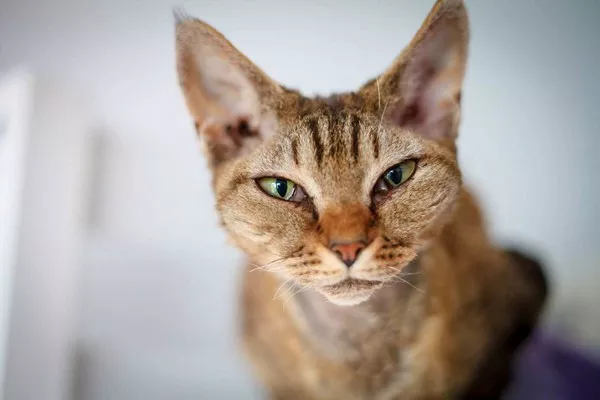Cats are beloved companions known for their playful antics and affectionate behavior. However, it can be confusing and concerning when your once-friendly feline companion suddenly bites you. Unwanted bites can leave you wondering about the reasons behind this unexpected aggression. In this article, we will explore the various factors that could lead to sudden biting behavior in cats, providing insights and guidance for cat owners to better understand and address this issue.
1. The Nature of Cats
Natural Instincts
Cats are predators by nature, and their behaviors are influenced by their instincts. Playful pouncing, stalking, and even nibbling are remnants of their wild ancestors’ hunting behaviors.
Communication Through Biting
Cats use biting as a form of communication. While it may seem aggressive to us, biting can convey various messages such as playfulness, irritation, or even affection.
2. Playful Biting
Play Aggression
Playful biting is common among kittens and young cats. They often engage in mock hunting behaviors, including gentle biting, to hone their skills and expend energy.
Redirecting Play
Sometimes, cats can get overstimulated during play sessions. Redirecting their attention to appropriate toys can help prevent accidental biting.
3. Overstimulation and Sensory Overload
Petting Sensitivity
Some cats are more sensitive to touch than others. Overstimulation during petting, especially in sensitive areas like the belly or tail, can trigger a sudden bite.
Reading Their Signals
Learning to read your cat’s body language is crucial. Tail flicking, flattened ears, and dilated pupils may indicate discomfort or overstimulation.
4. Fear and Stress
Defensive Behavior
A sudden bite could be a defensive response to perceived threats or stressful situations. Cats may feel cornered or frightened and resort to biting as a defense mechanism.
Creating a Safe Environment
Providing a safe and stress-free environment is essential. Cats should have hiding spots and elevated spaces where they can retreat if they feel anxious.
5. Pain or Medical Issues
Underlying Pain
Cats may bite unexpectedly if they’re in pain. Arthritis, dental issues, or even unnoticed injuries could trigger biting when touched in sensitive areas.
Regular Veterinary Check-ups
Routine visits to the veterinarian are crucial to identify any underlying medical conditions that could contribute to sudden changes in behavior.
6. Territorial Behavior
Protecting Their Space
Cats are territorial animals, and sudden bites may occur when they feel their territory is invaded by humans or other animals.
Respect Boundaries
Respecting your cat’s space and providing them with designated areas can help alleviate territorial concerns.
7. Redirecting and Training
Positive Reinforcement
Training and redirecting your cat’s behavior using positive reinforcement techniques can help modify aggressive tendencies.
Professional Assistance
For severe cases of sudden biting, seeking advice from a professional animal behaviorist or veterinarian is recommended.
Conclusion
In conclusion, sudden biting behavior in cats can be attributed to various factors, including natural instincts, playfulness, overstimulation, fear, pain, and territorial concerns. Understanding your cat’s body language and cues, as well as providing a safe and stress-free environment, are crucial steps in addressing this issue. Regular veterinary check-ups, positive reinforcement training, and seeking professional guidance when needed can help cat owners manage and modify sudden biting behavior. Remember that each cat is unique, and identifying the underlying cause of sudden biting will enable you to create a harmonious and respectful relationship with your feline friend.



























